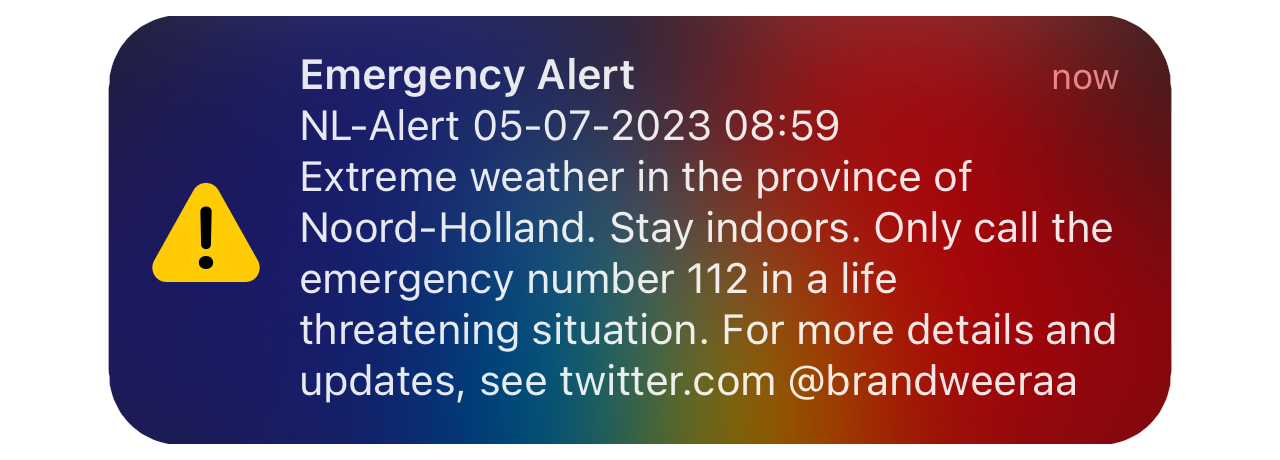The launch of Threads is an opportunity for public institutions to embrace the fediverse
Over at netzpolitik.org, Marcus Beckedahl argues that Threads (Meta’s Twitter replacement that launched[1] yesterday) “is the hope of the hour — and the wrong way to go.” Marcus arrives at his conclusion mainly by arguing from a user perspective, taking into account privacy concerns and Meta’s abysmal track record in this area. While understandable, the conclusion that Threads is fundamentally flawed because it perpetuates Meta’s surveillance-based business model misses the bigger picture.
Over the past few weeks, there has been a lot of controversy within the fediverse community about the anticipated launch of Threads, which is expected to be compatible with other ActivityPub-based services, such as Mastodon sometime after its launch[2]. In this post, I argue that from a public digital infrastructure perspective, Meta’s entry into the space and the fact that they have chosen to be interoperable with the existing fediverse is a good thing, as it paves the way for public institutions to enter the space and reduce their dependence on private communication platforms.
The dangers of privatized infrastructure
To understand why this is the case, let’s look at the service that both Mastodon and Threads are trying to replace — Twitter. Over the years, Twitter has become a de facto part of the public communications infrastructure: a global communications network open to everyone that operated as part of the open Internet. In the last few months — under the reign of Elon Musk — Twitter has lost this status, with the recently established requirement to be logged in with an account to read tweets being the final nail in the coffin of Twitter as a public communication channel.
Yesterday morning a summer storm swept over the Netherlands. In the 10 minutes, it took me to drop one of my daughters off at her school, the storm went from unpleasant to life-threatening. Local authorities responded to this unexpected increase in strength by issuing emergency alerts via the Cell Broadcast system:

The careful observer will note that these alerts directed the public to the Twitter account of the Amsterdam fire department for more information. An account that, as of last weekend, is no longer accessible unless you have a Twitter account and are logged into the service. What used to be a really useful information channel in emergency situations had become a completely useless service, and it seems that no one in the emergency services was even aware of it[3].
So what does all of this have to do with the launch of Threads by another American tech company equally beholden to the whims of a single individual? Surely moving the Amsterdam Fire Department’s emergency communications to Threads would be just as problematic.
Decentralized public infrastructures
The above anecdote makes it quite clear that no public or semi-public institution should provide its services through private platforms under the control of unaccountable external actors. Ideally, all public services should be provided through infrastructures and services under the control of public institutions. This is where the decentralized approach of fediverse comes in: it allows anyone to set up their own instances for a decentralized service like Mastodon. In this model, a logical place for the emergency communication channel of the Amsterdam Fire Department would be on the Mastodon server hosted by the municipality of Amsterdam: @brandweer@social.amsterdam.nl. Such a server could also host accounts of other municipal services or civic initiatives in Amsterdam. It would be under the control of the democratically elected government of Amsterdam and would operate as a genuine public service with a mission to serve the needs of the people of Amsterdam.
But as long as the fediverse is a small niche in the overall fabric of the Web, with a highly self-selecting user base, moving essential public communication services to the fediverse is not a viable option. These services need to be publicly available, but they also need to reach a large audience. This is where Threads comes in. Making Threads — a service that has the potential to be used by a large portion of Instagram’s user base, which is many times larger than Twitter’s user base — interoperable with other fediverse instances, could act as a massive multiplier of the reach of public services running on other fediverse instances. As a result of opening up to a much larger audience, Threads would become a viable option for public institutions that could offer communication services hosted on their own public infrastructures.
While it is legitimate to ask all kinds of questions about Meta’s motives and data extraction practices (as Marcus does in his post and as many Mastodon server operators have done in recent weeks), the fact is that Instagram and other commercial social media services capture the attention of large swaths of the online public. Public institutions and service providers have an obligation to reach those places.
The beauty of the federated approach of the fediverse is that it allows for participation without having to become a user of a service operated by a third party. Instead of being subject to the whims of commercial service providers, public institutions can reach their audiences through communication channels they control (or choose a service provider with compatible public interest values). And while much of the public is likely to stick with the services offered by established commercial social media companies, it is equally possible that new offerings from other entities will emerge. In fact, there is a vast opportunity for fediverse-based services hosted by civic institutions, such as public broadcasters, that can provide users with the same level of access as companies like Meta.
Twitter’s demise and Threads’ launch open a window of opportunity for building more robust digital public spaces. To take full advantage of this window, we need to ensure that public institutions and civic initiatives invest in their own self-managed infrastructure (or infrastructure provided by intermediaries such as local governments).
We must also accept that the majority of people who are active online are likely to find their virtual home in services provided by commercial providers. As long as we make sure that all these services are interoperable, this is a massive improvement over the current situation where public institutions are completely dependent on a small number of increasingly unreliable commercial platforms. If some of them, like Meta, are willing to help with this transition, we should encourage them to do so while ensuring that interoperability becomes a regulatory guardrail that can protect against commercial capture of this emerging ecosystem.
Footnotes
- For now Threads is not officially available in the EU since Meta has trouble sorting out how they can bring their surveillance-based business model in compliance with the EU regulatory framework^
- Despite the controversy Eugen Rothko the founder / CEO os Mastodon considers the fact that Threads will support ActivityPub “a clear win for our cause”.^
- The Amsterdam fire department later clarified that they are not publishing emergency updates via Twitter anymore since it is no longer a publicly accessible platform.^





